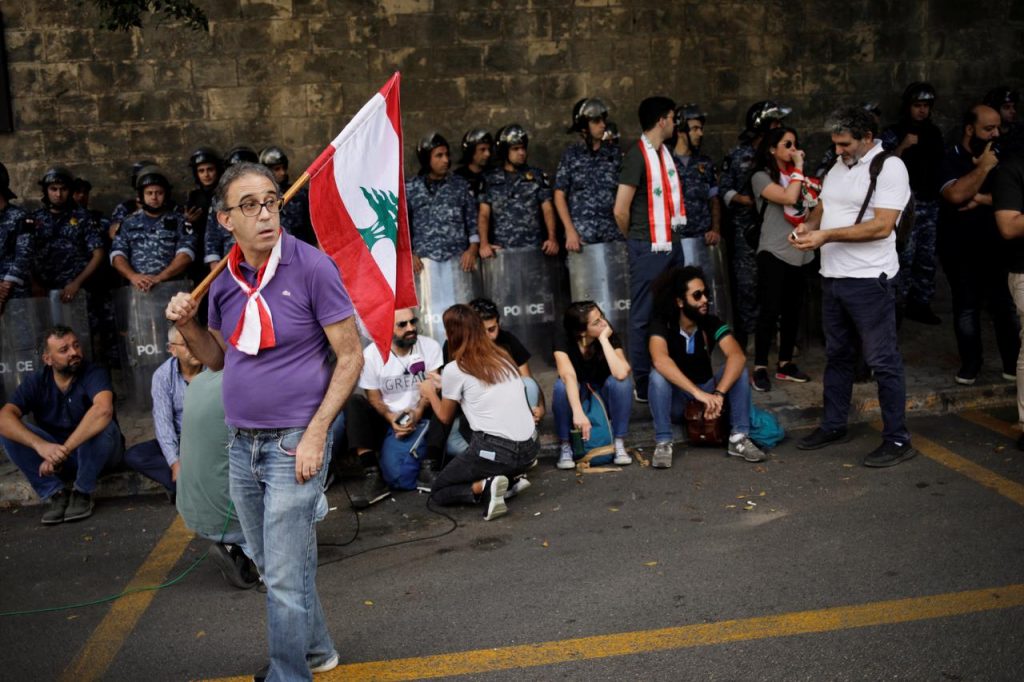
- ARAB NEWS
- 11 Jul 2025

What is the way forward for Lebanon? This is a very tricky question. How can Lebanon reconcile the street’s demands with reality? How can the international community safeguard Lebanon from total collapse? The regional director of the World Bank last week met with the Lebanese president and informed him of the seriousness of the situation. As many as 30 percent of the Lebanese people are living in poverty and this figure could easily go up to 50 percent if reforms are not undertaken immediately.
The country has no functioning infrastructure and the state is incapable of providing basic services. Nevertheless, the traditional political elite is unwilling to relinquish its grip on power. The problem is that the street represents no alternative. The street can demand, but it is not the one offering solutions or implementing them. These protests do not have a leadership — they are composed of small groups that appeared spontaneously and the ruling elite does not take them seriously. The political leaders are counting on the movement dissipating or becoming politicized, just like the 2015-16 movement of “Talaat Rihatkon” (You Stink) did before it fizzled out.
However, this movement is different. It marks a new collective consciousness: The Lebanese people are finally aware that the system is dysfunctional. More importantly, they are aware that they are all together in one boat. They are chanting “kullun yaani kullun,” meaning “all means all.” By denouncing all politicians, they are standing together, united against corruption. Here the corrupt political elites have no internal support, except for the few thugs they occasionally use to infiltrate and disrupt the demonstrations and intimidate protesters.
The streets now have a new problem, which is representation. Obviously, the existing elected parliament has lost its legitimacy as people are chanting for its removal. However, who are the true legitimate representatives of the people? So far there is no framework through which a legitimate representative can emerge. Anyone could claim that he or she represents the people and there is no mechanism to check or contest that. It is known that the current situation will allow many opportunists who have no real connection to the people to jump on the bandwagon and claim they are the true legitimate representatives of the streets.
If all powers fall — i.e., if the president resigns and the parliament and prime minister do the same — then how will the country be governed and how will any reforms be conducted? What kind of transition would allow for the formation of a new patriotic and clean political elite that is representative of the grassroots? What would early elections result in if there were no credible alternative to the current representation? We might have very much the same configuration.
Not only has the current configuration lost the trust of the people, it has also lost the trust of the international community. This is why we don’t see any international support for the government. No one is ready to bail out a corrupt state. When Prime Minister Saad Hariri resigned, we did not see any opposition to that, except from France. The silence facing the resignation of Hariri, given that he was the personality giving international exposure to the government, shows that the current structure has lost its international legitimacy.
Not only has the current configuration lost the trust of the people, it has also lost the trust of the international community.
Dr. Dania Koleilat Khatib
Everyone is counting down to a banking crisis despite the statement made by the head of the Lebanese banking association on Saturday, when he reassured depositors that their money is safe and that there is no need to panic. Moody’s, the ratings agency, has downgraded Lebanon’s rating to Caa2, which is poor quality and a very high credit risk. No friendly country is ready to support the current configuration and put dollars into the Lebanese central bank to boost the Lebanese pound.
As I have written previously, the only institution that has popular legitimacy is the army. The US State Department last week confirmed its continuing support for the armed forces. The discipline the army has shown in managing those protests is admirable. In a joint statement, Fadlo Khuri, the president of the American University of Beirut, and Salim Daccache, the head of Saint Joseph University — two very prestigious institutions — expressed their support for the demonstrations and their gratitude to the Lebanese armed and security forces.
However, the army cannot rule. A military council is incompatible with the Lebanese culture and traditions. A government of technocrats that is shielded from the current political streams is the best possible solution to implement reforms and lead the country toward new parliamentary elections. Nonetheless, in this very difficult period, the army should have the authority and the international support to protect the government and its members from any intimidation they might face from the old guard.
Dr. Dania Koleilat Khatib is a specialist in US-Arab relations with a focus on lobbying. She holds a PhD in politics from the University of Exeter and is an affiliated scholar with the Issam Fares Institute for Public Policy and International Affairs at the American University of Beirut.